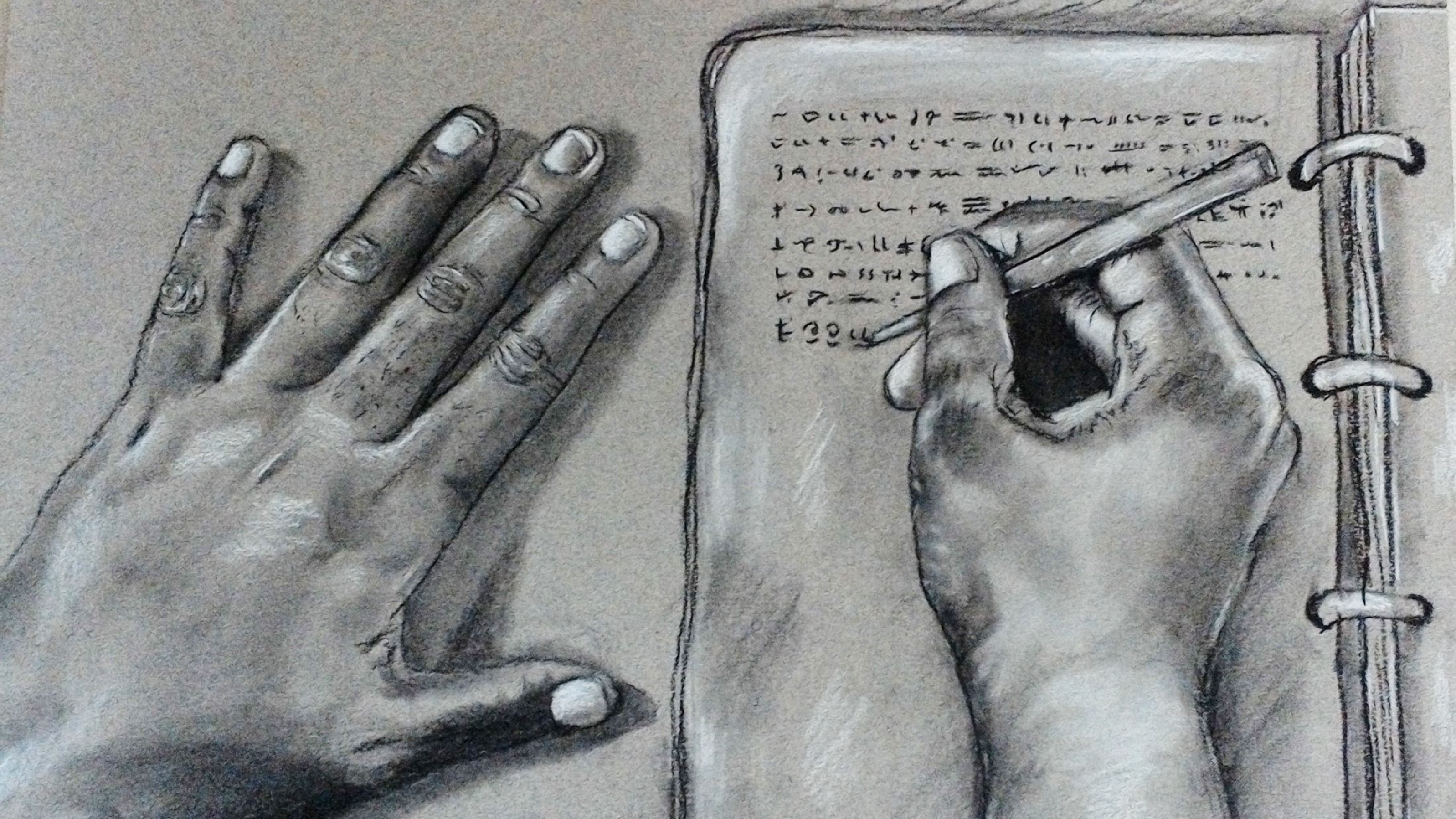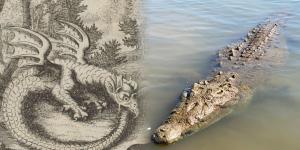You are here
Who Was Amaleki?

Omni 1:12
The Know
Most readers know very little about the six authors found in the small plates of Nephi after Enos. One even wonders whether they should be called prophets, priests, or both.1 Of the five recordkeepers in the book of Omni, Amaleki stands out for several reasons. His words account for nineteen of the thirty verses of the book.2 He was the last in his line of the small plates’ Nephite custodians, and he directly descended from the prophet Jacob—himself entrusted to record in and keep the plates by his older brother Nephi. This royal and prophetic charge was kept, in varying degrees of detail, by each descendant of Jacob down to Amaleki.3
Amaleki was one of at least two sons of Abinadom and was born “in the days of Mosiah [the Elder].”4 Because Nephi had commanded Jacob (and through him, his descendants) to “not touch, save it were lightly, concerning the history of this people,” the exact timing of events in this section of the Book of Mormon is uncertain (Jacob 1:2). But we do know that Amaleki lived through the days of Mosiah and into the reign of Benjamin (Omni 1:23). At some point during that reign, Amaleki “began to be old,” a phrase which the Book of Mormon often uses for individuals around seventy years old.5
While nothing is known of any sermons Amaleki potentially gave, he recorded his final exhortations in the closing lines of the small plates of Nephi. Amaleki believed in the prophetic call and seership of Mosiah (Omni 1:12–13, 20). As he prepared to deliver the plates to Mosiah’s successor, King Benjamin, he left a final series of exhortations for future readers of his family’s record, beginning by inviting all people to “come unto God, the Holy One of Israel” and to believe in six things:
- Prophesying
- Revelations
- The ministering of angels
- The gift of speaking with tongues
- The gift of interpreting languages
- All things which are good (Omni 1:25)
It seems likely that each of these six items relates to experiences in Amaleki’s own life.
Prophesying and Revelations
Amaleki lived a life that exemplified his belief. He and some members of his family followed Mosiah the Elder in leaving the land of Nephi for a new land, trusting that Mosiah was receiving the word of the Lord.6 On this journey they ventured into the wilderness, where they “[hearkened] unto the word of the Lord; and they were led by many preachings and prophesyings” and were “admonished continually by the word of God; and they were led by the power of his arm” (Omni 1:13). Amaleki established himself in the new land while others, including his own brother, left to recover their former land of inheritance (see Omni 1:27–30). Amaleki held true to what he knew the Lord had commanded him to do.
The Ministering of Angels
While Amaleki’s record does not state how the recordkeeper gained his testimony of the ministry of angels, it is clear that he had one, considering his sincere desire for all to receive that testimony as well. He could have called on the Lord and been comforted by His messengers many times—while settling in Zarahemla, mourning the departure of his brother, enduring the contentions among the people, or enduring the war against the Lamanites (Omni 1:24, 27–30; Words of Mormon 1:12–14).
The Gift of Speaking with Tongues
While the language gap between the Nephites and the people of Zarahemla was bridged by the diligent efforts of King Mosiah, Amaleki would have witnessed an application of the gift of speaking with tongues (Omni 1:18). This would not have been a one-time event, as language differences such as those between Nephites and Mulekites are difficult to solve in any society. Amaleki likely recognized the Lord’s hand in this process many times, as he dwelt in the land of Zarahemla for much of his life. This pre-Christian mention of the gift of tongues is remarkable, though we have little indication of how it might have compared to an early Christian understanding.7
Interpreting Languages
A related gift of the Spirit, “the gift of interpreting languages,” was also recorded by Amaleki. While speaking with tongues seems to be clearly verbal, this gift of interpretation may have referred specifically to written translation. Amaleki knew of Mosiah’s gift and recorded how “a large stone [was] brought unto [Mosiah] with engravings on it,” and the prophet-king and seer “did interpret the engravings by the gift and power of God,” relating the history it contained to some of his people (Omni 1:20–21). This gift may have also been employed by Mosiah as he taught the Mulekites his language and could likewise have been seen as a blessing from the Lord in multiple ways.
All Things Which Are Good
Many applications of this principle can be found in Amaleki’s record, but one to immediately consider would be that the Lord was not the source of the discontent and strife the Nephites had so often experienced in Amaleki’s lifetime. Amaleki wanted his audience to know that all good things come from the Lord and that “that which is evil cometh from the devil” (Omni 1:25).
Finally, at the end of his record, Amaleki repeated his earlier injunction to come unto the Lord, but specifically now named the Savior. He exhorted his future audience, saying, “Ye should come unto Christ, who is the Holy One of Israel, and partake of his salvation, and the power of his redemption.” As a path to this end, Amaleki told his readers to “offer your whole souls as an offering unto him,” to “continue in fasting and praying,” and to “endure to the end,” concluding that “as the Lord liveth ye will be saved” (Omni 1:26).
The Why
Amaleki had no children or relatives with whom he could entrust the small plates after he “began to be old” (Omni 1:25, 30). Knowing this as well as the fact that King Benjamin was “a just man before the Lord,” Amaleki made the surely difficult decision to conclude his family’s stewardship over this sacred record and deliver it up to King Benjamin (Omni 1:25).
As the prophet Mormon would later record, after Amaleki had “delivered up the [small plates] into the hands of king Benjamin,” the king took them and deposited them with the large plates of Nephi, which had been kept and handed down by the kings (Words of Mormon 1:10). They were certainly studied not only by King Benjamin but also by other Nephite rulers and prophets through the generations, as their influence can be detected in many speeches throughout the Book of Mormon.8 Amaleki’s faithful and diligent contribution, small as it was, had a significant impact. Even Moroni can be seen echoing some of Amaleki’s language in writing his own final farewell in the closing pages of the Book of Mormon (compare Omni 1:26 with Moroni 10:30).
Amaleki delivering the small plates to King Benjamin allowed Mormon, five hundred years later, to include them among his records “for a wise purpose … according to the workings of the Spirit of the Lord which is in me” (Words of Mormon 1:7). That purpose would be given by the Lord in modern revelation: to replace the pages stolen by the designs of wicked individuals during the Book of Mormon’s translation (Doctrine and Covenants 10:34–52). As Gary R. Whiting stated, “God has not placed any ‘filler pages’ in the Book of Mormon. … although his record is small and hidden inside a book commonly considered insignificant, Amaleki makes a great contribution to the Book of Mormon.”9
As the last of his line, Amaleki may have wondered about the legacy he was leaving behind at the end of his life. Often in our own lives, we consider the same things: whether we have had a positive impact in the lives of those we care about, whether our faithfulness and diligence in a difficult or seemingly inconspicuous calling is truly worth it in the end. The life of Amaleki is a testimony that our faithful actions are important and that the Lord will magnify and use our humble offerings in ways beyond our imaginations. As we stay true to the Lord, “offer [our] whole souls as an offering unto him … and endure to the end,” we know that the Lord will remember us and that “as the Lord liveth [we] will be saved” (Omni 1:26).
Further Readings
Book of Mormon Central, “Why Do the Authors on the Small Plates Follow a Pattern? (Jacob 7:27),” KnoWhy 74 (April 8, 2016).
Clifford P. Jones, “The Prophets Who Wrote the Book of Omni,” Interpreter: A Journal of Latter-day Saint Faith and Scholarship 34 (2020): 221–244.
Gary R. Whiting, “The Testimony of Amaleki,” in The Book of Mormon: Jacob through Words of Mormon, To Learn With Joy, ed. Monte S. Nyman and Charles D. Tate Jr. (Provo, UT: Religious Studies Center, Brigham Young University; Salt Lake City, UT: Deseret Book, 1990), 295–306.
John S. Tanner, “Jacob and His Descendants as Authors,” in Rediscovering the Book of Mormon, ed. John L. Sorenson and Melvin J. Thorne (Provo, UT: Foundation for Ancient Research and Mormon Studies, 1991), 52–66.
- 1. It is worth noting that Mormon, in relating his discovery of these plates, referred to the authors as prophets (Words of Mormon 1:3). For a recent discussion on the personal righteousness and potential prophetic role of Jacob’s descendants, see Clifford P. Jones, “The Prophets Who Wrote the Book of Omni,” Interpreter: A Journal of Latter-day Saint Faith and Scholarship 34 (2020): 221–244.
- 2. Part of the relative length of Amaleki’s writings can be attributed to the fact that he was not preserving room for future scribes. The little remaining space on the small plates—Amaleki’s nineteen verses filled up the plates (Omni 1:30)—also should be remembered when discussing the brevity of previous recordkeepers.
- 3. For more on this, see Book of Mormon Central, “Why Do the Authors on the Small Plates Follow a Pattern? (Jacob 7:27),” KnoWhy 74 (April 8, 2016). As shown on the chart in KnoWhy 74, Amaleki was notably the only of Omni’s five authors to fulfil all ten criteria set forth by Jacob in describing the points that each of his descendants should cover on these small plates.
- 4. Omni 1:12, 23, 30. It is not clear whether Amaleki’s birth took place before or after Mosiah was warned by the Lord to depart out of the land of Nephi (Omni 1:12). In verse 19, Mosiah is appointed king over the united peoples of Zarahemla and Mosiah. In verses 20–22, Amaleki recounts that “in the days of Mosiah,” the king interpreted the engravings of a large stone by the gift and power of God. Following this, in verse 23 Amaleki states that he “was born in the days of Mosiah.” This ordering, in addition to the third-hand style recitation of recent history in Omni 1:12–22, could indicate that he was born in the land of Zarahemla. However, that he died of old age during the reign of Mosiah’s successor would indicate that perhaps Amaleki was too young to have been cognizant of these events when they occurred and was taught about them later.
- 5. Omni 1:25. Including in Omni 1:25, the phrase “began to be old” is used seven times in the Book of Mormon: Jacob 1:9; Jacob 7:26; Enos 1:25; Mormon 6:6; Ether 5:19; and 9:14. In three of those instances—Jacob 1:9 (Nephi), Enos 1:25 (implied for both Jacob and Enos), and Mormon 6:6 (Mormon)—it is used to indicate ages of approximately seventy years or older. The other verses do not give indicative internal chronological markers. Based on the three cited verses, however, it seems appropriate to estimate Amaleki’s age to be about seventy years here. John W. Welch proposes that Amaleki passed away at seventy-two years old in “Longevity of Book of Mormon People and the ‘Age of Man,’” Journal of Collegium Aesculapium 3 (1985): 37–38. In his recent work, Jerry Grover estimates that Amaleki “grows old and transfers [the] small plates to King Benjamin” at sixty-five years old. See Jerry D. Grover Jr., Calendars and Chronology of the Book of Mormon (Tecumseh, MI: Challex Scientific Publications, 2023), 168.
- 6. We do not know the specifics of who from the line of Jacob followed Mosiah. Amaleki and his unnamed brother certainly did. However, we do not know whether their father, Abinadom, or any potential sisters, wives, or children joined them in this journey. Furthermore, it is uncertain whether Amaleki followed Mosiah as a youth or as an adult.
- 7. The gift of “divers kinds of tongues” is listed as a spiritual gift in 1 Corinthians 12:10. Modern scholarship now distinguishes between “the gift of an ‘unknown’ or ‘heavenly’ tongue (glossolalia) and the miraculous ability to speak in an ordinary language the speaker had not previously known (xenoglossia).” J. Spencer Fluhman, “The Joseph Smith Revelations and the Crisis of Early American Spirituality,” in The Doctrine and Covenants: Revelations in Context, ed. Andrew H. Hedges, J. Spencer Fluhman, and Alonzo L. Gaskill (Provo, UT: Religious Studies Center, Brigham Young University; Salt Lake City, UT: Deseret Book, 2008), 66–89. The linguistic challenges overcome by the Zarahemla community would fall under the umbrella of xenoglossia.
- 8. For an excellent recent study of the influence of the small plates on the rest of the Book of Mormon, see John Hilton III, Voices of the Book of Mormon: Discovering Distinctive Witnesses of Jesus Christ (Provo, UT: Religious Studies Center, Brigham Young University; Salt Lake City, UT: Deseret Book, 2024).
- 9. Gary R. Whiting, “The Testimony of Amaleki,” in The Book of Mormon: Jacob through Words of Mormon, To Learn With Joy, ed. Monte S. Nyman and Charles D. Tate Jr.(Provo, UT: Religious Studies Center, Brigham Young University; Salt Lake City, UT: Deseret Book, 1990), 295, 305.
KnoWhy Citation
Related KnoWhys
Subscribe
Get the latest updates on Book of Mormon topics and research for free





